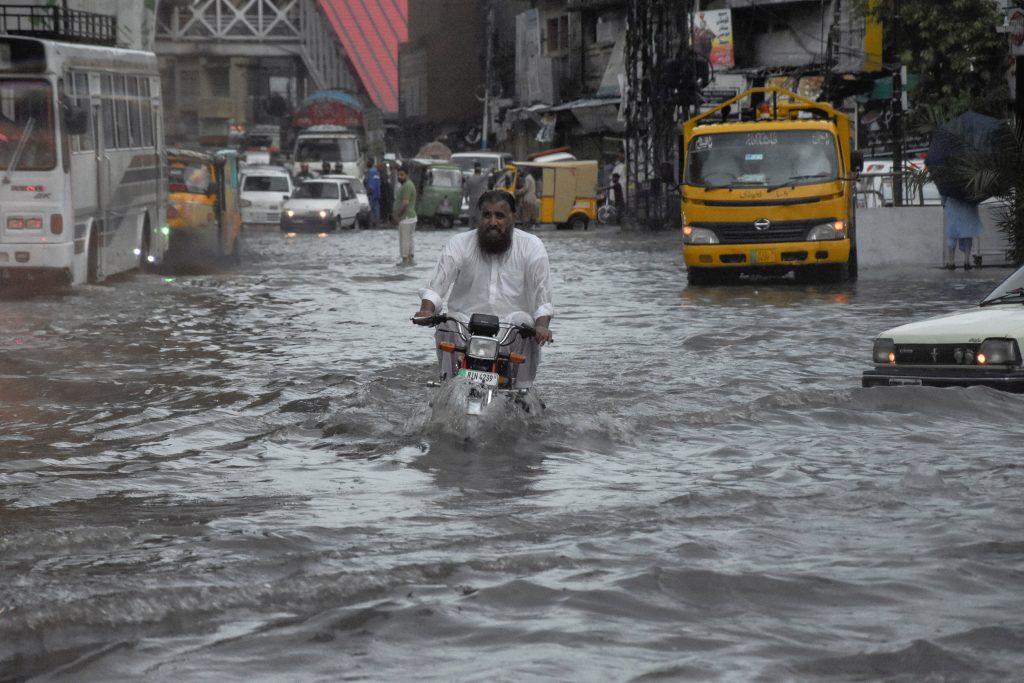ISLAMABAD: The Punjab Natural Disaster Management Authority (PDMA) has issued a flood warning for several regions in the province due to ongoing heavy monsoon rains. The downpours have claimed 154 lives over the past six weeks.
Pakistan, heavily affected by climate change, faces severe impacts from the current monsoon season. United Nations officials have warned that at least 200,000 people across the country could be affected. The National Disaster Management Authority (NDMA) reports that most fatalities have occurred in Punjab and Khyber Pakhtunkhwa due to floods triggered by the rains.
Authorities predict that water levels in rivers, dams, and streams will rise, with the monsoon expected to last until August 14. The NDMA has issued alerts for potential flooding in the Indus River and rivers adjoining the Chenab and Ravi rivers. In Sialkot, PDMA Punjab has reported a flood situation in the ‘Nala Dek’ stream and has urged local administration and citizens to stay vigilant.
In Sindh, heavy rains have led to renewed flooding in barren areas along the Indus River and coastal villages. The NDMA has warned of potential urban flooding and urged residents to evacuate. Floodwaters are threatening fish farms crucial for local consumption and export.
Sindh Chief Minister Syed Murad Ali Shah is coordinating efforts to address the urban flooding. He recently met with Pakistan People’s Party Chairman Bilawal Bhutto Zardari to discuss the situation. A meeting in Thatta district, where the Indus River meets the Arabian Sea, included local officials and NGO leaders to manage the flood challenges.
Residents are dealing with both flooding and saltwater intrusion, which has damaged crops and displaced communities. In Sindh’s desert regions, traditionally fertile areas like Badin are struggling with significant agricultural losses due to excessive rains. Farmers like Fayaz Alam Buledi face uncertainty as abnormal weather patterns disrupt their crops.


